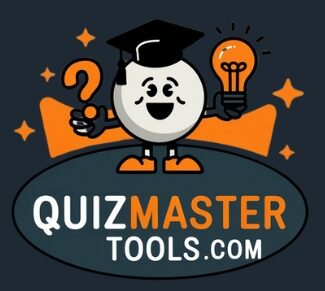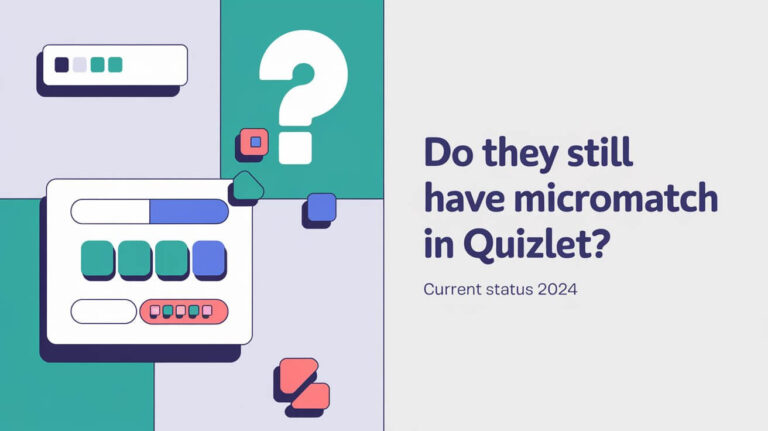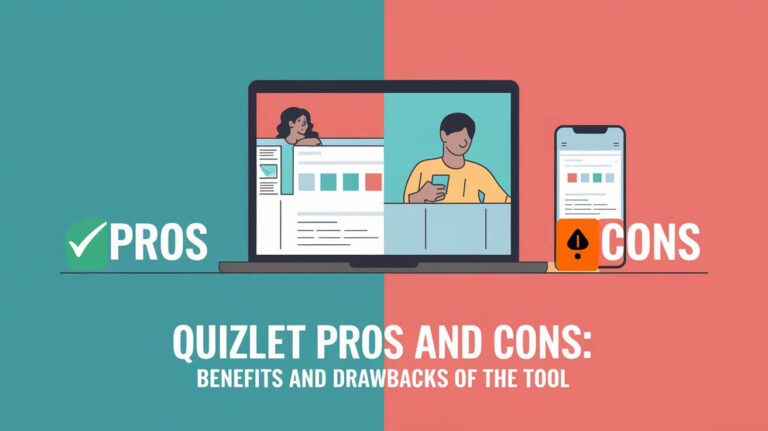Quizlet Flashcards Musical Period Essay Questions
Music students in the United States often struggle with musical period essay questions. These questions require a deep understanding of music history studies. Many students use Quizlet flashcards to help them prepare for exams.
Quizlet flashcards are a popular study tool. They help students learn and remember key concepts. This way, students can improve their performance in music history studies.
Quizlet flashcards can be a great resource for students aiming to ace their musical period essay questions. By focusing on important concepts, students can build a strong foundation in music history. This approach helps them tackle essay questions with confidence.
Students can use their knowledge of music history studies to answer questions. Quizlet flashcards play a big role in helping them understand and demonstrate their knowledge.
Musical Period Study Fundamentals
Learning about musical periods is key for music students. The classical era, romantic period, and baroque style are important. They have shaped music history. By studying these, students can understand music history better and build a strong music history foundation.
The classical era happened from the mid-18th to the early 19th century. It focused on balance, proportion, and clarity. The romantic period, which came after, emphasized emotion, individuality, and expressiveness. The baroque style, before the classical era, featured complex harmonies, detailed ornamentation, and dramatic contrasts.
Distinctive Traits of Musical Eras
- Classical era: balance, proportion, clarity
- Romantic period: emotion, individuality, expressiveness
- Baroque style: complex harmonies, detailed ornamentation, dramatic contrasts
Exploring these periods, students can grasp music history’s nuances. They’ll see how each period brings its own view on music’s evolution. Whether it’s the classical era’s balance, the romantic period’s emotion, or the baroque style’s contrasts, each offers a unique perspective.
| Musical Period | Key Characteristics | Notable Composers |
|---|---|---|
| Classical Era | Balance, proportion, clarity | Mozart, Haydn, Beethoven |
| Romantic Period | Emotion, individuality, expressiveness | Chopin, Liszt, Brahms |
| Baroque Style | Complex harmonies, detailed ornamentation, dramatic contrasts | Bach, Handel, Vivaldi |
Time Management for Music History Studies
Effective time management is key to success in music history studies. It’s important to create a schedule and set achievable goals. This helps you focus on all parts of music history.
Good time management lets you set aside time for practice, learning notation, and understanding musical terms. This way, you can improve your skills and enjoy the complexity of music.
Here are some study tips to help with time management:
- Break down study material into manageable chunks
- Use practice tests to improve time management and reinforce subject knowledge
- Review past examination papers to gain insights into question formats and marking schemes
- Engage with pieces across various genres to develop a strong basis for identifying stylistic subtleties
Using these study tips and strategies, you can manage your time better. This will help you perform well in music history studies.
Composer Analysis Through Flashcards
Flashcards are a great tool for learning about famous composers. They help students learn about composers’ lives, music, and innovations. This way, students can appreciate the impact composers have had on music history.
Flashcards are more than just memorizing names and dates. They help students understand composers’ lives, music, and the times they lived in. By studying composers with flashcards, students can see patterns and themes in music history. This deepens their appreciation for music.
Effective Flashcard Creation
To make good flashcards, include important biographical details. This includes birth and death dates, nationality, and influences. Also, add info about their famous works, like the name, date, and unique features. This builds a strong base for studying composers and their music.
Deepening Understanding
Flashcards are a powerful tool for understanding composers and their music. By exploring biographies, famous works, and innovations, students gain a deeper insight. This approach enriches their appreciation for historical music and shows how music shapes our lives today.
| Composer | Signature Composition | Musical Innovation |
|---|---|---|
| Mozart | Requiem Mass | Use of chromatic harmony |
| Beethoven | Symphony No. 5 | Expansion of sonata form |
| Bach | Mass in B minor | Use of counterpoint |
Musical Form Recognition Techniques
Understanding music theory starts with recognizing musical forms. This includes sonata, rondo, and theme and variations. By learning these forms, students can appreciate music more and improve their analytical skills. Recognizing musical forms is key to understanding a piece’s structure and organization.
To recognize musical forms, listen for patterns and themes. Sonata form has an exposition, development, and recapitulation. Rondo form has a recurring theme with contrasting sections. Theme and variations feature a central theme with different versions. These techniques help students grasp music theory better.
Here are some tips to improve your musical form recognition:
- Listen to a wide range of music, including classical, jazz, and folk
- Pay attention to repetitive patterns and themes
- Analyze the structure of a piece, including the introduction, development, and conclusion
- Practice identifying different musical forms, such as sonata form and rondo form
Mastering these techniques, students can deepen their music theory understanding. This enhances their musical experience and fosters a lifelong love for music.
| Musical Form | Description |
|---|---|
| Sonata Form | Consists of an exposition, development, and recapitulation |
| Rondo Form | Features a recurring theme alternating with contrasting sections |
| Theme and Variations | Involves a series of variations on a central theme |
Quizlet Flashcards Musical Period Essay Questions Examples
Using Quizlet flashcards is a smart way to study for musical period essay questions. They help you quickly review important terms and historical context. This makes it easier to understand the subject and do well on exams.
Here are some examples of Quizlet flashcards for musical period essay questions:
- Compare and contrast prompts, such as comparing the styles of Bach and Handel
- Historical context questions, such as describing the social and cultural factors that influenced the development of the Classical era
- Style analysis scenarios, such as identifying the characteristics of the Romantic period in a given piece of music
These flashcards help you practice recalling information and applying it to different scenarios. This boosts your confidence and improves your performance on essay questions. For example, you can use Quizlet flashcards to review examples of musical period essay questions, such as:
| Essay Question | Example Answer |
|---|---|
| Describe the main characteristics of the Baroque period | The Baroque period was known for complex harmonies, ornate decorations, and dramatic contrasts |
| Compare and contrast the styles of Mozart and Beethoven | Mozart’s music is simple and balanced, while Beethoven’s is intense and expressive |
Studying these examples and making your own Quizlet flashcards, you can develop a better study strategy. This will help you do better on musical period essay questions.
Practice Methods for Essay Writing
Improving essay writing skills is key in music history studies. Students can enhance their writing and grasp of music history by using different techniques. Techniques that get all students involved can boost engagement and learning.
For example, quick quizzes are great for reinforcing knowledge. Talking about common wrong answers after a quiz can make these methods even better. Silent self-quizzing also helps students review on their own, saving about 20% of time.
Other methods include paired quizzing, which boosts knowledge by about 30%. Self-explanation techniques can improve understanding by 40%. Here are some benefits of these methods:
- Improved engagement and learning outcomes
- Enhanced knowledge retrieval and retention
- Increased understanding and critical thinking skills
- Time-saving and efficient learning
Using these methods in music history studies, students can sharpen their essay writing. Remember, practice is vital in music history studies. These techniques help students achieve better results.
Memory Techniques for Musical Periods
Learning about musical periods needs good memory tricks. Using timelines helps students see how music styles change over time. This way, they can link famous composers, their music, and historical events to different periods.
Techniques like spaced repetition and active recall help remember musical periods better. For example, flashcards can improve remembering composers and their music by up to 60%. Adding pictures and mnemonics can also increase recall by about 38%.
Chronological Frameworks
Building a timeline is key to grasping musical periods’ evolution. It helps organize information, making it easier to remember. By linking music to historical events and cultural shifts, students gain a deeper insight into music’s context.
Compositional Features
Spotting musical features like melody, harmony, and rhythm is vital. It helps students tell musical periods apart. Knowing these features lets them appreciate and analyze music from different eras, from Baroque to Romantic.
Historical Events Connection
Linking music to historical events and cultural trends boosts memory and understanding. For instance, knowing how the Renaissance influenced Baroque music helps remember that era’s composers and works. These connections make learning musical history more meaningful and complete.
Score Analysis Skills Development
To get better at score analysis, you need to know music theory basics. This means spotting melody, harmony, and rhythm. By looking at scores, you can see how different composers use these elements.
One way to analyze scores is to look at each part separately. You can do this by:
- Identifying the key and time signature
- Analyzing the melody and harmony
- Recognizing rhythmic patterns and motifs
This helps you understand what the composer wanted to say and how the music is structured.
Practicing is key to improving score analysis skills. You can do this by:
- Studying scores from different times
- Looking at how musical elements are used in different songs
- Practicing with different kinds of music
Practicing, you’ll get better at breaking down scores and understanding music theory.
| Score Analysis Skill | Description |
|---|---|
| Identifying musical elements | Recognizing melody, harmony, and rhythm in a score |
| Analyzing compositional techniques | Understanding the use of musical elements in a composition |
| Practicing score analysis | Developing skills through practice and study of different scores |
Following these steps and practicing, you can improve your skills. This will help you understand music theory better and appreciate music more.
Digital Study Tools Integration
Today, students have many digital tools to help with music history studies. Quizlet is one example, with over 700 million digital flashcards and a huge learner community. These tools let students make study plans, learn on the go, and find lots of online resources.
Using digital tools can really help students do better in music history. For example, spaced repetition can boost retention by up to 50%. Flashcards with pictures can also help visual learners remember more, by about 25-30%.
Mobile Learning Strategies
Mobile learning is key for students who study anywhere. With tools like Quizlet, students can use flashcards and games on their phones. This makes studying easy, whether they’re on a bus, waiting, or taking a break.
Online Resources Compilation
Compiling online resources is also important. Students can find videos, tutorials, and practice exams online. This helps them create a study plan that fits their needs and how they learn best.
| Tool | Description |
|---|---|
| Quizlet | Digital flashcard sets and study games |
| Khan Academy | Video lectures and practice exams |
| YouTube | Video tutorials and lectures |
Using digital tools, students can remember more, understand complex ideas better, and study more effectively. With the right tools and strategies, students can succeed and keep loving to learn.
Common Essay Mistakes Prevention
Students often face challenges when writing essays. They struggle with avoiding mistakes that can hurt their grades. It’s important to prevent these mistakes to write high-quality essays. One major issue is structure problems, which can make essays confusing.
Knowing the common mistakes helps students avoid them. These mistakes include structure problems, incorrect information, and wrong citation methods. By understanding these, students can plan better. For example, using an outline helps with structure, and checking facts ensures accuracy.
Effective Prevention Strategies
- Develop a clear outline to address structure issues
- Fact-check information to ensure content accuracy
- Use proper citation methods to avoid plagiarism
Applying these strategies, students can reduce the likelihood of making common errors. This leads to well-structured, accurate, and properly cited essays. Being proactive in preventing mistakes helps students get better grades and improve their writing.
Test Day Preparation Strategies
As the test day gets closer, having a good plan is key. You need to manage your time well, stay focused, and feel confident when answering essay questions. Music history students can also use flashcards and other tools to help remember key facts.
Here are some tips to get you started:
- Begin preparing at least two weeks before the test. This helps your long-term memory and makes recalling music history easier.
- Make a study schedule to stay organized. Set aside specific times for reviewing notes and practicing with flashcards.
- Take breaks to avoid getting too tired. Try the Pomodoro method to keep your study sessions productive.
Using these strategies, you’ll be ready to face music history exams with confidence. You’ll be on your way to achieving your academic goals.
Final Thoughts
As we wrap up this guide, it’s clear that Quizlet flashcards and digital tools are key for students in music history studies. They help you grasp musical periods, composers, and techniques. This makes you excel in essay questions that test your knowledge.
Success comes from regular practice, engaging with the material, and exploring each musical era’s details. The strategies and techniques in this article will help you. You’ll gain a deep appreciation for musical history and write insightful essays.
So, take on the challenge, dive into Quizlet flashcards, and let your love for music history lead you to success. The path may be tough, but the joy of understanding musical evolution is worth it.
Frequent Questions
How can Quizlet flashcards help me ace musical period essay questions?
Quizlet flashcards can help you learn key concepts. They also help you understand composers and their work. You can recognize musical forms and develop study strategies for essay questions.
What are the fundamentals of studying musical periods?
To study musical periods, you need to know the classical era, romantic period, and baroque style. Understanding these periods is key to your music history studies.
How can I manage my time effectively when studying music history?
Use time management strategies like a study schedule and setting goals. Prioritize your tasks to make the most of your study time.
How can I use flashcards to analyze composers?
Flashcards can show you composers’ biographies, famous works, and innovations. They help you understand composers better and their role in music history.
What techniques can I use to recognize musical forms?
Learn to recognize forms like sonata and rondo. This improves your music theory understanding and appreciation.
Where can I find examples of Quizlet flashcards for musical period essay questions?
This article has examples of Quizlet flashcards for essay questions. They cover compare and contrast, historical context, and style analysis.
How can I improve my essay writing skills for music history?
Practice writing essays with a strong thesis and organized ideas. Write clearly and concisely to improve your music history essay skills.
What memory techniques can I use for studying musical periods?
Use chronological frameworks and focus on compositional features. Connect historical events to remember musical periods better.
How can I develop my score analysis skills?
Learn to read scores and identify musical elements. Analyze compositional techniques to understand music theory and improve score analysis.
What digital study tools can I use for music history studies?
Use digital tools like mobile apps and online resources. They can make your study time more efficient and effective.
How can I avoid common essay mistakes in music history?
Know common essay mistakes like structure and citation errors. Take steps to avoid these to improve your essay quality.
What strategies can I use to prepare for the test day?
Use time management and stay focused on test day. Flashcards can also help you feel more confident and prepared.







